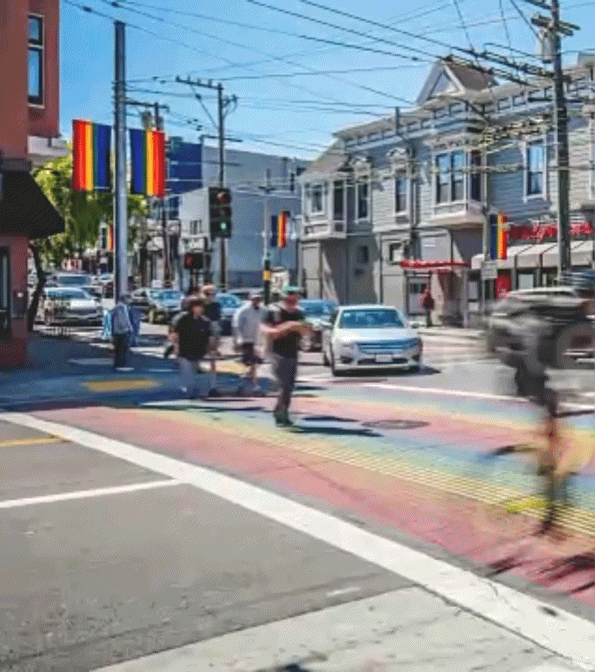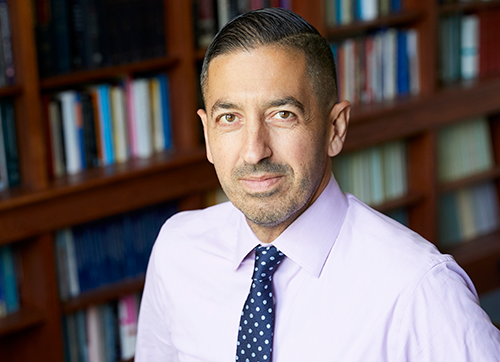Pride, Progress, and Challenges to LGBTQIA+ Health.

Pride, Progress, and Challenges to LGBTQIA+ Health
On celebrating Pride Month in a context of gains and setbacks for LGBTQIA+ rights.
I have long felt that public health is more than a series of policies and proscriptions against disease. It is also a celebration of community, of mutual respect and care, of the love and connections that support a rich, full life, of the diversity that makes our world a better, more varied place, and of the progress that advances a healthier status quo. This is what we celebrate each June, as we mark the arrival of Pride Month. Pride Month is a time for celebrating the LGBTQIA+ community, for acknowledging the many contributions of our LGBTQIA+ friends, family, students, and colleagues, for marking progress towards the full acceptance of this community, and for recognizing the challenges it still faces.
In 2015, the US Supreme Court, in Obergefell v. Hodges, guaranteed the right of same-sex couples to marry. Last year, President Biden signed the Respect for Marriage Act, codifying into law this fundamental right. From an historical perspective, this marked a rapid shift from a status quo which denied the basic human rights of same-sex couples to one which has begun to support them, however imperfectly. Just a little over a decade ago, the prospect of federally recognized marriage equality seemed far off, with even some of its eventual supporters, such as President Obama, initially opposing it. Then—happily, seemingly suddenly—it became the law of the land.
There are a range of reasons for the speed of this change, but surely a key driver of progress has been a wider acknowledgement that to deny LGBTQIA+ populations the fundamental right to be who they are is to deny the possibility of living fully realized lives. It is an attack on the central autonomy of human beings, the capacity to live in a way that reflects our innermost selves. As the visibility of LGBTQIA+ populations increased, more and more Americans saw the cruelty of denying this population these rights. In the majority opinion for Obergefell v. Hodges, Justice Anthony Kennedy wrote of same-sex couples, “Their hope is not to be condemned to live in loneliness, excluded from one of civilization’s oldest institutions. They ask for equal dignity in the eyes of the law. The Constitution grants them that right.” This decision reflected the core function of a politics that supports healthy populations—the upholding of dignity through law and policy. It was a step towards a politics which finally respected the fundamental autonomy of LGBTQIA+ populations by affirming their ability to be who they are, to love who they love.
When the Supreme Court ruled in favor of marriage equality in 2015, there was reason to be hopeful about the progress of LGBTQIA+ rights. While we have indeed seen progress since then, we are in a moment when LGBTQIA+ populations are facing challenges—a backlash to the advances of recent years. The Respect for Marriage Act was, in part, a response to Justice Clarence Thomas writing, in a concurrence with the Dobbs decision overturning Roe v. Wade, that the Supreme Court might also reconsider upholding the right to same-sex marriage. We have also seen transgender rights face significant challenges. While the Bostock v. Clayton County Supreme Court decision affirmed that the protections of the Civil Rights Act of 1964 cover transgender individuals, a wave of legislation around the country targeting transgender populations has kept these rights in a state of uncertainty. This reflects the continued importance of carrying on the work that brought about marriage equality, Bostock, and other gains. It means working together to support the health of LGBTQIA+ populations by advocating for the policies that support the dignity and health of this community and against efforts that place health at risk.
As we reflect on Pride Month, it is worth taking a moment to think about the meaning of pride in the context of LGBTQIA+ rights. For a long time, to be a member of this community meant facing conditions of stigma and shame, which often forced LGBTQIA+ identifying people to hide or downplay their identities. In celebrating pride, we celebrate the visibility, acceptance, and imperfectly realized progress that is helping to shape a better world for LGBTQIA+ populations. Pride also acknowledges that, even as we work for progress, the dignity and worth of this population is not dependent on broader societal attitudes. It is not up for debate. The dignity of LGBTQIA+ populations is inherent in the fundamental humanity that we all share. No matter the historical moment—whether in the days when LGBTQIA+ identity was criminalized, during the height of the AIDS crisis, or in the present moment of progress and challenge—there has always been cause for pride. The LGBTQIA+ population has always been here, making essential contributions to our collective life. There has always been much to celebrate, even as our society has been far too slow in acknowledging this. Pride Month, then, is about making up for lost time as much as it is for celebrating the moment. It is a time to celebrate for all those who could not, to mark both the present and the past, to look ahead to a better future, and to recommit to making this future a reality.
We all have a fundamental human right to live in accordance with who we are, with our deepest nature. An assault on a population’s identity is an assault on the fundamental core of dignity and autonomy that enables health. Attacks on transgender populations, efforts to roll back the rights of same-sex couples, bigotry and phobia in the public square—we should call these what they are, an abrogation of our collective responsibility to support the health for all by supporting the dignity of all. They are also, at core, expressions of fear. Fear of “the other,” fear of change, fear of the truth about ourselves and our society. Fear can do much harm to the health of populations. But there is an antidote to fear: love. It is the love of same-sex couples and their allies working for decades for the right to marry. It is the love of parents for their transgender children. It is the love of those who are willing to look beyond bigotry to see the humanity of those they once vilified. Love is stronger than hate, stronger than the forces that would take us back to less compassionate, less inclusive status quo. This love is at the heart of Pride Month. It is a love which strives towards justice, because, in the words of Cornel West, “Justice is what love looks like in public.”
Thank you to our school community for all you are doing to advance justice for LGBTQIA+populations. At SPH, we work towards a better world for our LGBTQIA+ friends, colleagues, family, and students by engaging in activism and advocacy, and by continuing our pursuit of more diverse, inclusive communities. We are led in this work by the many faculty, staff, student leaders, and alumni who are engaged in shaping a healthier world for the LGBTQIA+ community and for all populations whose rights have been too long deferred. It is a privilege to be able to pursue this work as part of this school community, where so many are leading the way towards a better future.
Warm regards,
Sandro
Sandro Galea, MD, DrPH
Dean and Robert A. Knox Professor
Boston University School of Public Health
Acknowledgement: I am grateful to Eric DelGizzo for his contributions to this Dean’s Note.
Previous Dean’s Notes are archived at: http://www.bu.edu/sph/tag/deans-note/
